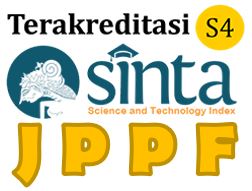The Effect of STEM-Based Learning Approaches on Critical Thinking Abilities and Student Learning Outcomes: Meta-Analysis
 ), - Asrizal(2), - Usmeldi(3),
), - Asrizal(2), - Usmeldi(3), (1) Masters Study Program of Physics Education, Universitas Negeri Padang, West Sumatera
(2) Department of Physics, Universitas Negeri Padang, West Sumatera
(3) Department of Electrical Engineering, Universitas Negeri Padang, West Sumatera, Indonesia
 Corresponding Author
Corresponding Author
DOI : https://doi.org/10.24036/jppf.v9i2.122602
Full Text:
 Language : en
Language : en
Abstract
The challenges of the 21st century require students to have 21st-century skills. To prepare students to have 21st-century skills, the learning that the teacher must carry out must also be oriented toward 21st-century learning. STEM is one of the approaches in learning science that supports 21st-century learning. Critical thinking is a person's ability to analyze problems and ideas in a more specific direction to find solutions according to reason and knowledge possessed. With hope, if students' critical thinking skills increase, student learning outcomes will also increase. Therefore, researchers are interested in conducting meta-analysis research in effect size analysis of the influence of STEM-based learning approaches on critical thinking skills and student learning outcomes. From research using the meta-analysis method through effect size analysis of 20 journals, it can be concluded that STEM-based learning significantly affects critical thinking skills and student learning outcomes
 Article Metrics
Article Metrics
 Abstract Views : 128 times
Abstract Views : 128 times
 PDF Downloaded : 50 times
PDF Downloaded : 50 times
Refbacks
- There are currently no refbacks.




